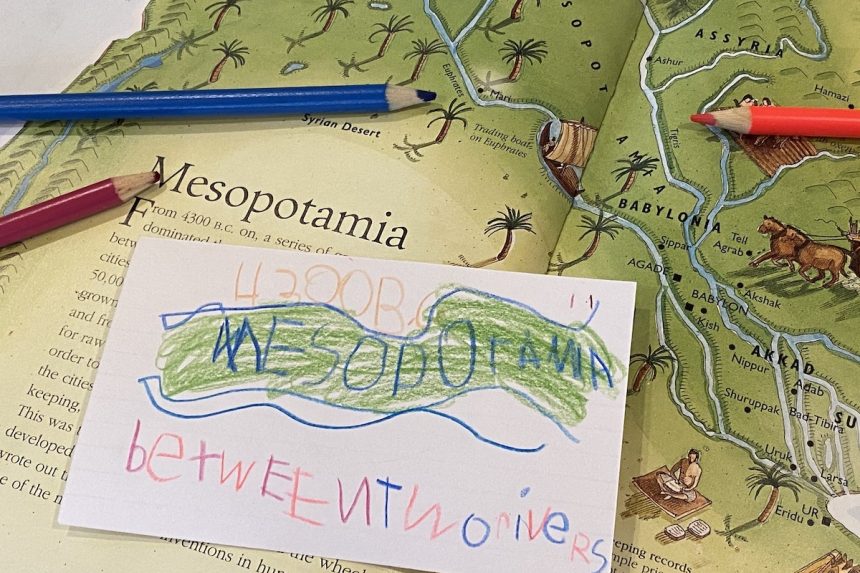In the age of GPS and smart phones, does geography even matter anymore? Why teach geography?
Surveys and studies show that when issued a geography test, U.S. adults can only answer roughly half of the questions correctly. Half. A single digit percentage of the population tested received a score better than 80% of the questions right. In our ever-growing, connected world, geo-literacy is more important now than ever to understand each other and our place in this global society.
Do you remember the big over-sized atlas books as a kid? Or the big atlas of highways your grandparents kept in the car for road trips? These are fascinating items for children thirsty for knowledge about their world. And they contain more than maps.
What is Geography?
Geography is more than direction finding or map-based knowledge. Geography is a study of the physical limits of land and sea, of river length and direction, of mountain highs and valley lows. It is also the study of different ecosystems and weather patterns that exist within specified borders. Geography informs us of scale in landform elevation and sea depth. It depicts volcanic mountains and tectonic fault lines. Geography also measures population size, ethnicity, religions, economics, and natural resources. You may be hearing Charlie Brown’s teacher now, “Mwa mwa mwa mwaaaa,” and still are asking why geography matters in the current day of the information age when answers are a click away.
Why does Geo-literacy Matter?
It matters because you cannot understand the Earth’s diverse environments, their interactions and impact on humanity without geography. Geography is from the Greek word meaning ‘earth description.’
Sure, you can ask your favorite search engine anytime whatever question you may wonder. And if it’s a location, your GPS can tell you how to get there. However, the way you filter all this information and understand its relationship to the world and to you is based on your understanding of geography.
Geography is not a subject to study in isolation. Like any subject, it doesn’t exist on its own. It intersects with other areas and adds context, dimension and scope. Geography itself is a science, the study of the earth and its relationship with people and environments. Geography is also critical in understanding history, architecture, art, music, technological advancements, math, literature, weather systems, global commerce, urban planning, international politics, etc. because it is a study of us – humanity – and our environment.
Life is Geography.
Life is geography. This is why geography has been called “the mother of all sciences.” This is why geography matters.
We must teach and learn geography to better understand today’s world so that we can prepare ourselves and our children to successfully navigate and compete in it. Part of being a global citizen is to understand and appreciate the interconnections and relationships between cultures and their environments. To search and discover the answers to questions like, “What is similar and what is different, why and where did these cultures develop?” That work begins with understanding geography.
Stay tuned to learn how we teach geography in a relational and living manner that engages children in this important area of study.




